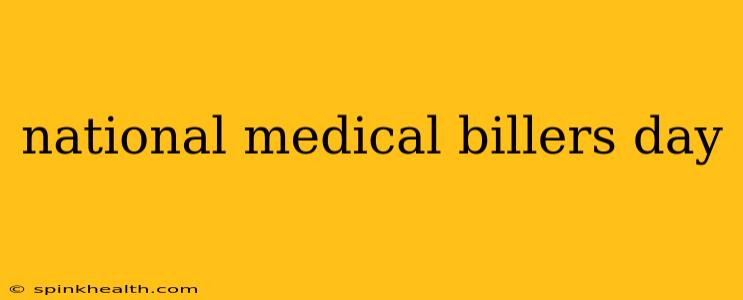It's February 28th, and while many might not know it, today we celebrate the unsung heroes of the healthcare system: medical billers! These dedicated individuals work tirelessly behind the scenes, ensuring that hospitals, clinics, and medical practices receive the financial reimbursements they need to operate and provide essential care. But their role extends far beyond simply submitting bills; it's a complex dance of regulations, codes, and meticulous detail, demanding precision and patience in equal measure. Let's delve deeper into the world of medical billing and honor those who keep the healthcare system afloat.
What do medical billers actually do?
This isn't just about sending invoices. Medical billers are the navigators of a complex healthcare financial landscape. Imagine a intricate puzzle where each piece represents a medical code, insurance regulation, and patient information. Medical billers skillfully assemble these pieces, ensuring accurate claims are submitted to insurance companies and government payers. They interpret medical charts, translate clinical jargon into billing codes (think CPT and ICD codes), and verify patient insurance coverage – all while adhering to strict compliance regulations. They're the financial gatekeepers, ensuring smooth payment processes for both the healthcare providers and the patients.
What are the common challenges faced by medical billers?
The job is far from straightforward. Medical billers often face numerous hurdles, making their work all the more demanding. Let's explore some of the common challenges they navigate daily:
Keeping up with ever-changing regulations and codes:
Healthcare billing is constantly evolving. New regulations and coding systems are frequently implemented, requiring continuous learning and adaptation. Billers must stay abreast of these updates to ensure accurate billing practices and avoid costly errors.
Dealing with complex insurance policies and denials:
Navigating the labyrinthine world of insurance policies and claims denials is a daily reality. They must master the intricacies of different insurance plans, understand the reasons for denials, and meticulously appeal rejected claims, often involving considerable paperwork and follow-up.
Maintaining accuracy and efficiency amidst high volume:
Medical billing often involves high volumes of claims, demanding meticulous attention to detail and efficient workflow management. A single error can lead to delayed payments or even financial losses for the healthcare provider.
Managing patient inquiries and concerns:
Billers often act as the primary point of contact for patients regarding their bills. They must effectively communicate complex financial information, address patient concerns, and resolve billing discrepancies with tact and professionalism.
What skills are essential for a successful medical biller?
A successful medical biller needs a unique blend of skills, combining analytical abilities with excellent communication and interpersonal skills. Here are some key attributes:
Strong analytical and problem-solving skills:
The ability to analyze complex medical records, interpret codes, and identify discrepancies is crucial. They must be adept at solving problems creatively and efficiently, particularly when dealing with denials or billing errors.
Detail-oriented and organized:
Accuracy is paramount in medical billing. Attention to detail and excellent organizational skills are vital for ensuring the correct codes are applied, the paperwork is accurate, and the claims are submitted on time.
Excellent communication skills:
Medical billers interact with patients, doctors, and insurance companies, necessitating excellent written and verbal communication skills. They must effectively convey information and address concerns clearly and professionally.
How can I express my gratitude to a medical biller?
This National Medical Billers Day, take a moment to recognize the invaluable contribution of medical billers. A simple "thank you" can go a long way in showing appreciation for their hard work and dedication. Consider sending a card, expressing your gratitude for their meticulous work in ensuring timely payments to healthcare providers. Their efforts directly impact the quality of care we all receive. Let's make this day a celebration of their often-overlooked but critically important role in the healthcare ecosystem.

